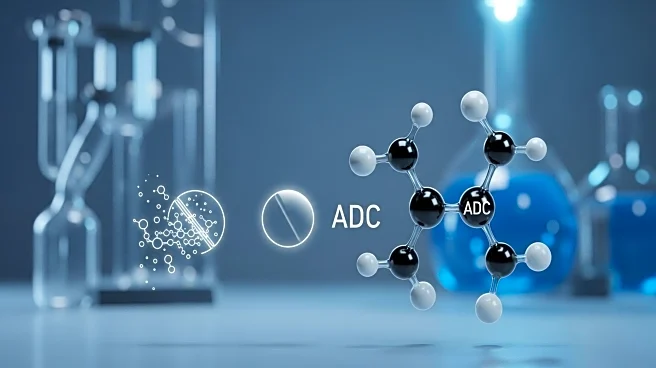What's Happening?
Zymeworks, a clinical-stage biotechnology company, has decided to discontinue its mesothelin-targeted T cell engager, ZW171, following Phase 1 trials that revealed dose-limiting toxicities. Despite this setback, Zymeworks is redirecting its resources towards other promising candidates in its pipeline, such as ZW191 and ZW251, which leverage its proprietary TOPO1i payload platform. ZW251, targeting glypican-3 in hepatocellular carcinoma, has received FDA clearance for its Investigational New Drug application and is set to enter Phase 1 trials. Meanwhile, ZW191, targeting folate receptor-alpha in gynecological cancers, is already in Phase 1 trials. Zymeworks aims to file five IND applications by mid-2026, underscoring its strategic focus on high-impact programs.
Why It's Important?
The discontinuation of ZW171 highlights the challenges in oncology drug development but also demonstrates Zymeworks' strategic agility in managing its portfolio. By reallocating resources to ADC and bispecific antibody programs, Zymeworks is positioning itself to capitalize on its TOPO1i platform's advantages, such as moderate potency and strong bystander activity. This shift not only mitigates risks associated with single-indication setbacks but also enhances the company's competitive edge in the ADC market. The diversification into autoimmune diseases further reduces reliance on oncology, potentially stabilizing long-term growth and investor confidence.
What's Next?
Zymeworks plans to continue advancing its ADC candidates, with ZW251 and ZW191 expected to progress through clinical trials. The company is also developing ZW1528, an AIID candidate, slated for clinical trials by late 2026. Additionally, ZW209, a DLL3-targeted trispecific T cell engager for small cell lung cancer, is scheduled for IND filing in early 2026. These developments could redefine Zymeworks' trajectory, offering improved efficacy in solid tumors and expanding its market presence.
Beyond the Headlines
Zymeworks' strategic reallocation reflects a mature approach to risk management, balancing innovation with commercial viability. The company's focus on its TOPO1i platform and diversification into autoimmune diseases positions it to deliver long-term value despite clinical setbacks. This approach may influence industry standards in ADC development, emphasizing the importance of payload versatility and reduced off-target toxicity.









